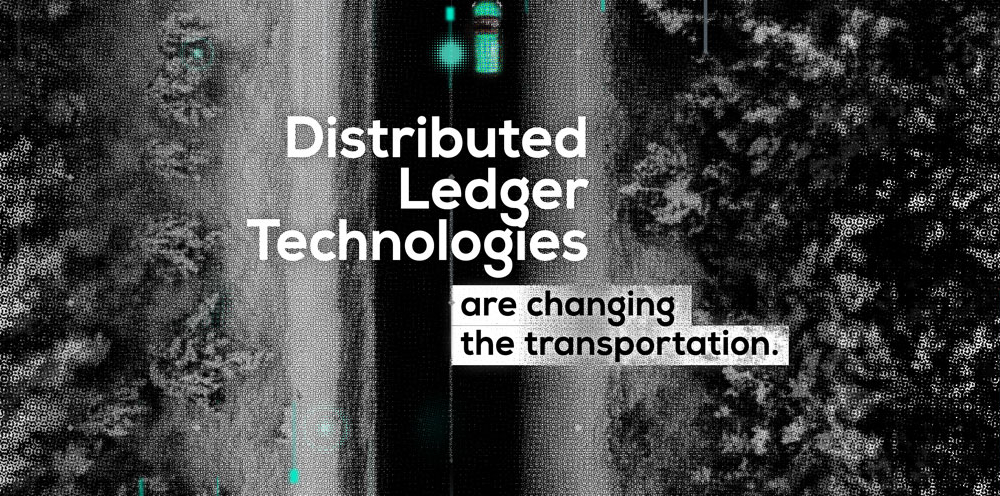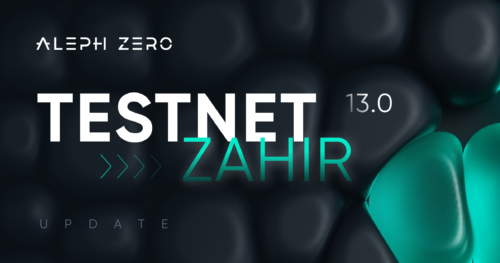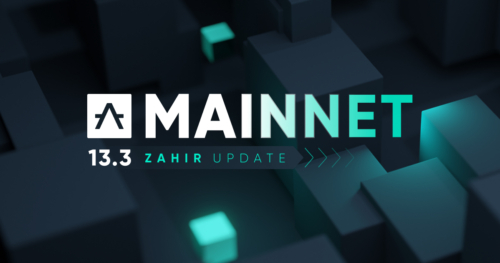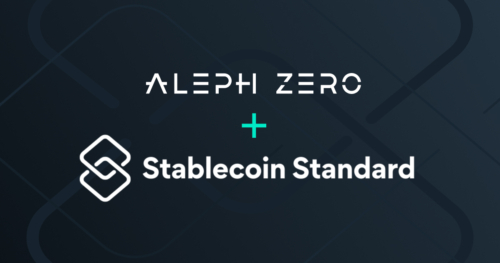It Happened: Mercedes-Benz Will Use Blockchain
Aug 20, 2019

The technology advancements are constantly reshaping our surroundings. Turns out, blockchain might become the driving force of the near-future transportation.
The Background — How is a Car Made?
If you think that car manufacturers, like Audi or Mercedes-Benz, are responsible for the entire production process, you have a lot to catch up on. In pursuit of performance, convenience, and safety, automobiles have become extremely complex designs — objects with countless parts, units, systems, sensors, cameras, and more. However, the industry, as a whole, is moving towards autonomous vehicles, resulting in even more intricate builds.
The increased complexity of the design challenges the manufacturing processes and must guarantee delivery of each and every part. A singular — even global — company is simply not able to create every part in-house. The logic behind this reasoning is of an economic nature. It’s simply cheaper to outsource.
Let’s focus on Mercedes-Benz for a while. Even though the company employs 145,000 people, it’s safe to say that they’d need to significantly increase that number to control the end-to-end process in its entirety.
What do car manufacturers do, then? They build the product by outsourcing some of the work and relying on their supply chain. Of course, we can’t diminish the original company’s role in designing the car model itself — without it, the “chain” wouldn’t exist.
Now you know — or probably you’ve known that before — how a car is manufactured. Due to the aforementioned complexity of the supply chain, the automotive industry was one of the first global industries expected to use Distributed Ledger Technologies (DLT).
Decentralized Supply Chain

And then, the news came on 25 Feb. — Mercedes-Benz Cars teams up with Icertis to implement DLT in supply chain management. They have created a prototype and are testing it right now, as you read these words.
Mercedes-Benz uses a blockchain protocol to implement sustainability in their supply chains. To achieve this, the problem can be condensed into two main challenges.
The first one is ecological in nature. Large-scale car manufacturing over the last 100 years has left a substantial, negative footprint on the planet. Factories are still polluting the air heavily — even with the best interest at heart and doing what’s necessary to decrease the negative impact on the environment, they still have a long way to go. Producing a new car these days emits dozens of tonnes of CO2.
Then, there’s the case of raw materials — how are they extracted with as little negative outcomes as possible? Who works in the factories and in what conditions? How does the extraction influence the local environment?
These are the questions that need to be answered to ensure sustainability. For example, lithium used for batteries of electric vehicles occurs in dry ecosystems. However, the process of extraction requires large quantities of water — and this might impact the availability of the resource for the people that live nearby.
Car manufacturers certainly don’t plan to affect their surroundings negatively — but in real life, they just don’t have the tools to execute their environmental policies with 100% certainty. And this ‘certainty’ is what the German car manufacturer aims to achieve with this advancement.
So, what else do Distributed Ledger Technologies bring to the table? Immutability.
As long as one party controls the entire process, the data can be altered if it’s not favorable or simply not good enough. Therefore, ensuring immutability and transparency throughout the process not only drastically lowers the possibility of reporting false data — it’s also immensely responsible from a socio-economic perspective.
Mercedes-Benz decided to create a sustainable transaction book with contract clauses held on a blockchain. This way, they want to ensure that direct suppliers follow their strict sustainability requirements. They want to bring transparency to their contracts but at the same time, they aim to trace the components and raw materials across their supply chain.
It’s an ideal use case for DLT technology as it requires two of its hallmark features: decentralized governance over the book with contract clauses, as well as its immutability.
While elements of the chain regarding sustainability will be visible to all the parties, any confidential data can remain hidden.
“The transmission of contracts to each member of the supply chain is the prerequisite of cooperation with our suppliers, especially in terms of sustainability and ethical conduct. [Our] blockchain prototype opens up completely new ways to make purchasing processes simpler and safer,” says Sabine Angermann, Head of Purchasing and Supplier Quality for Raw Materials and Strategy at Mercedes-Benz Cars.
The challenge lies in the quality of data and in the level of its digitization. Mercedes-Benz wants to cooperate with its suppliers to ensure that as much of the particulars are stored digitally. The ease of use operations on the blockchain-based service platform is the key to the success of this project.
“With our Blockchain prototype, we are in the first step testing one of the diverse possible applications with the aim of increasing transparency beyond our direct suppliers,” said Wilko Stark, Member of the Divisional Board of Management at Mercedes-Benz Cars, Procurement and Supplier Quality
The Industry Has Been Already Exploring
Although the revelations from Mercedes-Benz Cars are the most recent, the automotive industry started exploring the DLT space as early as a few years ago.
Mercedes-Benz has been a member of Hyperledger since 2017. Daimler AG, the parent company of Mercedes, has sent €100 million worth corporate promissory note on blockchain the same year. They are also involved in developing smartVIN. This project aims to store vehicle information that cannot be altered — from manufacturing to ownership and service details. This could change the landscape of buying used cars. In 2018, Daimler AG also tested MobiCoin which aimed to incentivize eco-friendly driving.
Besides Mercedes-Benz, there is Audi. They have prepared a Proof of Concept for their supply chain management in 2017. It was based on Hyperledger Fabric. The results were satisfying for the company, so they moved forward with the project. Now they are investigating the use cases of DLT in finance, documentation, logistics, supply chains, and IT security.
You can find numerous information about merging the old but still innovative automotive market with novel Distributed Ledger Technologies. While Porsche plans to invest €150 million in blockchain and startups over the next 5 years, they have also received a €150 million loan from Spanish bank BBVA. Porsche has also teamed up with Xain, a Berlin-based tech startup to research dapps. They see this as an opportunity for private car sharing.
Then, there’s Toyota Research Insitute that partnered up with MIT Media Lab to explore blockchain and develop new mobility system. BMW joined forces with VeChain (which rebranded to VeChain Thor) as a Venture Customer.
An important partnership is one of Volkswagen and IOTA. During CeBIT 18 in Germany, they showed their Proof of Concept, where they point that IOTA’s Tangle DAG protocol can be used for a Vehicle-to-Vehicle communication. We can expect such cars to enter the market next, or even this year.
At the top of all these experiments is the Mobility Open Blockchain Initiative which gathers the biggest players from automotive, tech, and blockchain industries to accelerate the adoption of DLTs in transportation.
Automotive is Serious About Blockchain
As you can see, blockchain is already an integral part of the automotive industry. DLT might have begun as a vision of crypto enthusiasts — they wanted to build a protocol for distributed administration of databases in an environment without trusted authority. But as it turns out, there are a plethora of other use cases for such protocols, supply chain management being one of them.
An IBM report called “Daring to be first” explores the topic of supply chains further. The survey has been carried out in a group of 1314 automotive executives across 10 functional areas and 10 countries. What do they say?
- 62% of the executives claim that DLT’s will be a disruptive force in the industry within three years
- 54% expect new business models to influence investments within blockchain
- 54% will implement their first commercial blockchain on a scale within the next three years
It’s happening! However, only a small number of the companies are ready for the blockchain transformation or have a blockchain solution that’s ready for commercial use. The thing is, the ground is shaking from all the noise around blockchain in the automotive space.
All parts of the industry are experimenting with blockchain. Mercedes-Benz Cars wants to utilize distributed ledger for supply chain management but so do the companies within the supply chains.
And this leads us to this conclusion — Distributed Ledger Technology is going to revolutionize the transportation industry.
Possibly sooner, rather than later.


